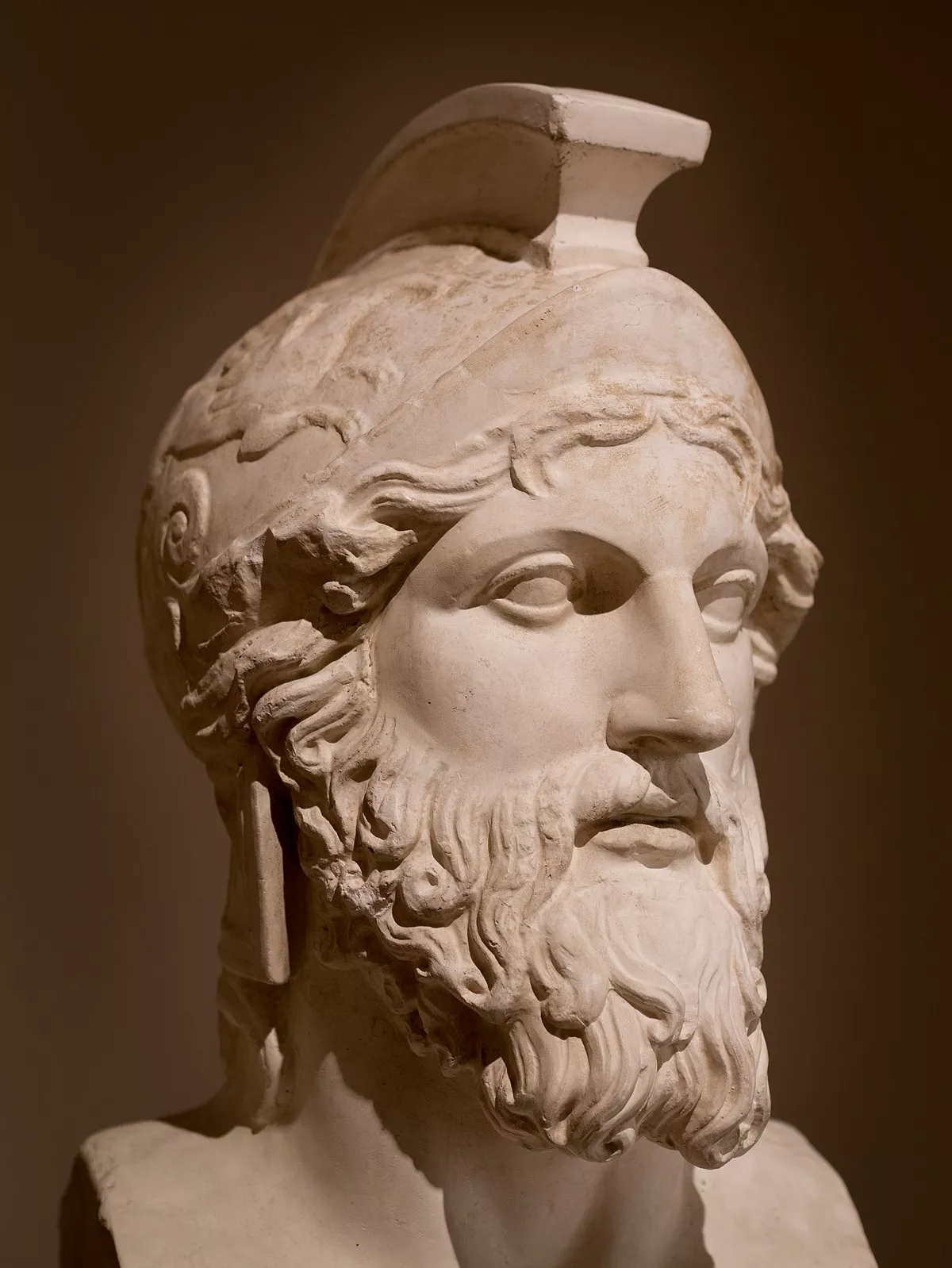 1.
1. Miltiades, known as Miltiades the Younger, was a Greek Athenian statesman known mostly for his role in the Battle of Marathon, as well as for his downfall afterwards.

 1.
1. Miltiades, known as Miltiades the Younger, was a Greek Athenian statesman known mostly for his role in the Battle of Marathon, as well as for his downfall afterwards.
Miltiades was the son of Cimon Coalemos, a renowned Olympic chariot-racer, and the father of Cimon, the noted Athenian statesman.
Miltiades was a well-born Athenian, and was accounted a member of the Aeacidae, as well as a member of the prominent Philaid clan.
Miltiades came of age during the tyranny of the Peisistratids.
Miltiades's family was prominent, due in good part to their success with Olympic chariot-racing.
Plutarch claimed that Cimon, Miltiades's father, was known as "Coalemos", meaning "simpleton", because he had a reputation for being rough around the edges, but whose three successive chariot-racing victories at the Olympics made him popular, so popular in fact that, Herodotus claims, the sons of Peisistratos murdered him out of jealousy.
Miltiades was named after his father's maternal half-brother, Miltiades the Elder, who was a victor at Olympic chariot-racing.
Miltiades's son Cimon was a major Athenian figure of the 470s and 460s BC.
Miltiades made an alliance with King Olorus of Thrace by marrying his daughter, Hegesipyle.
Miltiades joined Darius's northern expedition against the Scythians, and was left with other Greek officers to guard a bridge across the Danube, which Darius had used to cross into Scythia.
Miltiades later claimed that he had tried to convince the other officers to destroy the bridge and leave Darius and his forces to die, but the others were afraid, and Darius was able to recross, though some historians are skeptical of this claim.
Miltiades joined the Ionian Revolt of 499 BC against Persian rule, returning to the Chersonese around 496 BC.
Miltiades established friendly relations with Athens by capturing the islands of Lemnos and Imbros and ceding them to Athens, which had ancient claims to these lands.
Miltiades's trial was further complicated by the politics of his aristocratic rivals and the general Athenian mistrust of a man accustomed to unfettered authority.
However, Miltiades successfully presented himself as a defender of Greek freedoms against Persian despotism.
Miltiades promoted the fact that he had been a first-hand witness to Persian tactics, which was useful knowledge considering the Persians were bent on destroying the city.
Miltiades is often credited with devising the tactics that defeated the Persians at the Battle of Marathon.
Miltiades was elected to serve as one of the ten generals for 490 BC.
Miltiades convinced Callimachus to use his decisive vote in favor of a swift attack.
Miltiades convinced the other generals of the necessity of not using the customary tactics of using hoplites arrayed in an evenly distributed phalanx armed with shields and spears, tactics otherwise not deviated from for 100 years, until the time of Epaminondas.
Miltiades feared the cavalry of the Persians attacking the flanks, and asked for more hoplites to be stationed there than in the centre.
Miltiades ordered the two tribes in the centre, the Leontis tribe led by Themistocles and the Antiochis tribe led by Aristides, to be arrayed to a depth of four ranks while the rest of the tribes, on their flanks, were arrayed in eight ranks.
Miltiades suffered a grievous leg wound during the campaign and became incapacitated.
Miltiades was sent to prison where he died, probably of gangrene from his wound.
Aeschines writes that although Miltiades wanted his name to be written in the Stoa Poikile, the Athenians refused.